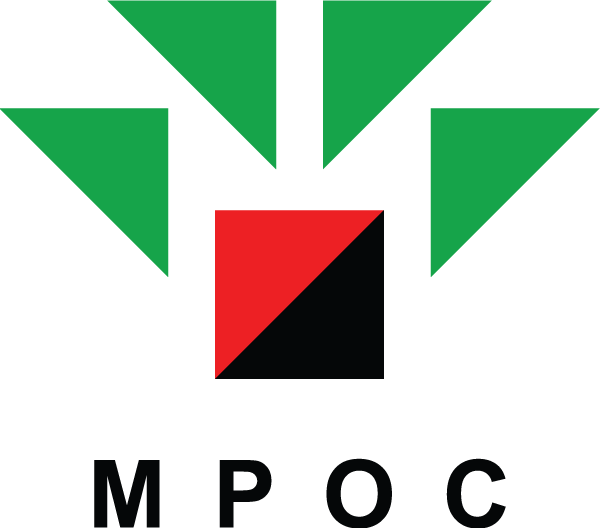
ORGANIZED BY:

Module 1 - Agricultural Commodities and Sustainability Certification:
European Green Deal, Farm to Fork Strategy and Agricultural Commodities Post COVID-19

Mr. Frans Claassen
Frans Claassen is involved in sustainable palm oil development since 2003 when he was the Dutch Agricultural Counsellor for Indonesia, Malaysia and Singapore. As a graduate (1990) in Agricultural Economics of the Wageningen University he started his career as policy advisor within the Ministry of Agriculture. From 1996 – 2005 he worked as an Agricultural Counsellor at the Royal Netherlands Embassies in Beijing, P.R. China and Jakarta, Indonesia (2000 – 2005). At the end of 2005 he returned back to The Netherlands and became managing director of MVO – the Netherlands oils and fats industry and started the Dutch Alliance for Sustainable Palm Oil. Since 2012 he Chairs the European Palm Oil Alliance (EPOA). Frans is married with Angela and has a son (24) and daughter (22).
VIEW PROFILE
The European Commission set out its vision and ideas for how the continent can help to protect and restore – the world’s forests. What does this mean for the palm oil industry, and what do we think here at EPOA? We set out our stance on this crucial issue in a recent position paper. In summary, let me, as chair of EPOA - the European Palm Oil Alliance a business initiative of palm oil refiners and producers, explain what we think:
Sustainable deforestation-free palm oil contributes to the SDGs
Palm oil is the most widely used vegetable oil in the world because of its functional benefits, versatility and widespread availability. Palm oil is also the most important cooking oil for millions of people around the world, who often live in poverty. Plus, it represents many people’s way out of that poverty, as they can earn a living by producing it. At EPOA we believe that sustainably produced palm oil is a key food ingredient that fits in a nutritionally balanced diet and helps feed the world, protect biodiversity and improve socio-economic development. So sustainable produced palm oil contributes to the UN Sustainable Development Goals (SDGs). In Europe and worldwide, food and non-food manufacturers will continue to need and use palm oil, so it must be produced and consumed in a sustainable way, without deforestation.
We’ve come a long way already
Since the turn of the century many different voluntary and national mandatory sustainability initiatives have been introduced with success in the palm oil industry. Although we still face enough challenges, we can also proudly say that the palm oil industry is a frontrunner in the development of sustainability within agriculture worldwide.
Challenges and opportunities
We should not forget that all palm oil and Palm Methyl Ester (PME) used in the European Biodiesel market are all certified sustainable due to mandatory RED requirements.
Next to that, 86 per cent of the palm oil imported for food, feed and oleochemicals in Europe is certified sustainable due to voluntary commitments – a great success. But we also acknowledge there’s still much more to do. Frontrunners in the palm oil supply chain are paying the additional price while many European Food and Retail companies are not yet using certified sustainable palm oil, or not using physical certified sustainable palm oil.
Due to incomplete, false and misleading information campaigns of several NGOs and media we face an unbalanced image of sustainable palm oil in Europe. This has resulted in a trend where several food companies and retailers due to commercial reasons are moving away from palm oil and are promoting palm oil free products.
At the same time we also see leading food companies and retailers, like Ferrero, Unilever, Upfield and Tesco that support sustainable palm oil and are increasingly communicating on the use of certified sustainable palm oil.
We acknowledge that there are limits to what voluntary measures can achieve on the demand side and on the production side as well.
The EU Farm to Fork (F2F) strategy and the EU communication to Protect and Restore the World’s Forests both offer opportunities and challenges to further improve sustainable production and consumption. It is also important that these new policies should stop the unbalanced image of palm oil and acknowledge the importance of sustainable palm oil for implementing the UN SDGs.
Use mandatory due diligence
One of the regulations EPOA wants to see introduced in the EU is a mandatory due diligence for companies using palm oil and other vegetable oils. We believe that this will create a level-playing field and a consistent framework for all companies. These checks and balances should be non discriminatory, so also be introduced for other commodities like soy, beef, cocoa, etc. The EU must avoid shifting sustainability issues to other commodities. Let’s get a fair, wide-ranging regulatory framework in place for all production and consumption that is related to deforestation.
Be constructive
The EU shouldn’t use regulations as barriers for trade or burdens for already vulnerable and in many cases smallholder producers. As palm oil industry we need to be bold about our sustainable ambitions and practices and communicate on the progress made. The EU plays a decisive role in sharing truthful information and prevent misleading green labelling and end the use of free-from palm oil claims. This is crucial for transparency and the credibility of the EU and the legislation and regulations adopted. As EPOA, we remain alert to misleading claims and will continue to act proactively when we believe misleading communication and/or claims are being used.
Multilateral approach
The EU is not the only market that imports forest-risk commodities. We believe the EU should engage with other sizable importers of forest-risk commodities beyond Europe, which is essential to have impact on a global scale. The F2F strategy is an opportunity for the EU to start the development of international standards for sustainable production and consumption. But this can only be effective if EU regulatory and non-regulatory measures and sustainability standards are:
• supported by sound, scientific evidence
• developed after multilateral and multi stakeholder discussion and
• built upon existing private and national sustainability standards that have driven supply chain transformation over the last decade and which includes environmental, social and economic policy aspects.
Promote good governance
At EPOA we acknowledge the importance of national mandatory standards like MSPO and ISPO and initiatives in producing countries to produce sustainably and stop deforestation, and believe the EU should do the same. We would like to stress that each region of the world moves at a different speed, with its own challenges and opportunities. In our opinion positive impact in producing countries can only be achieved when good governance both on forest protection and agricultural production as well as support to producers (and particular towards smallholders) is in place.
Support producing countries and farmers on the ground
The EU imports only a part of global palm oil production and 86 per cent of palm oil imported for food, feed and oleochemicals in Europe is already certified sustainable. We believe that if the EU is serious with Protecting and Restoring the World’s Forests and promoting sustainable production and consumption, it is necessary for the EU to de-escalate the current political trade tensions on palm oil and develop concrete fruitful policy dialogue and partnership support programs with the producing countries to have impact on a global scale.
EPOA is selected by the European Commission to be part of the Multi-Stakeholder Platform on Protecting and Restoring the World’s Forests, which starts its work on 2 October next and where we will present our above mentioned views.
Last but not least: as EPOA we believe in the strength of working together will all palm oil producing countries and alignment of our advocacy activities. We highly appreciate in this respect the multi-year support and cooperation with Malaysia via the Malaysian Palm Oil Council.
Sustainable deforestation-free palm oil contributes to the SDGs
Palm oil is the most widely used vegetable oil in the world because of its functional benefits, versatility and widespread availability. Palm oil is also the most important cooking oil for millions of people around the world, who often live in poverty. Plus, it represents many people’s way out of that poverty, as they can earn a living by producing it. At EPOA we believe that sustainably produced palm oil is a key food ingredient that fits in a nutritionally balanced diet and helps feed the world, protect biodiversity and improve socio-economic development. So sustainable produced palm oil contributes to the UN Sustainable Development Goals (SDGs). In Europe and worldwide, food and non-food manufacturers will continue to need and use palm oil, so it must be produced and consumed in a sustainable way, without deforestation.
We’ve come a long way already
Since the turn of the century many different voluntary and national mandatory sustainability initiatives have been introduced with success in the palm oil industry. Although we still face enough challenges, we can also proudly say that the palm oil industry is a frontrunner in the development of sustainability within agriculture worldwide.
Challenges and opportunities
We should not forget that all palm oil and Palm Methyl Ester (PME) used in the European Biodiesel market are all certified sustainable due to mandatory RED requirements.
Next to that, 86 per cent of the palm oil imported for food, feed and oleochemicals in Europe is certified sustainable due to voluntary commitments – a great success. But we also acknowledge there’s still much more to do. Frontrunners in the palm oil supply chain are paying the additional price while many European Food and Retail companies are not yet using certified sustainable palm oil, or not using physical certified sustainable palm oil.
Due to incomplete, false and misleading information campaigns of several NGOs and media we face an unbalanced image of sustainable palm oil in Europe. This has resulted in a trend where several food companies and retailers due to commercial reasons are moving away from palm oil and are promoting palm oil free products.
At the same time we also see leading food companies and retailers, like Ferrero, Unilever, Upfield and Tesco that support sustainable palm oil and are increasingly communicating on the use of certified sustainable palm oil.
We acknowledge that there are limits to what voluntary measures can achieve on the demand side and on the production side as well.
The EU Farm to Fork (F2F) strategy and the EU communication to Protect and Restore the World’s Forests both offer opportunities and challenges to further improve sustainable production and consumption. It is also important that these new policies should stop the unbalanced image of palm oil and acknowledge the importance of sustainable palm oil for implementing the UN SDGs.
Use mandatory due diligence
One of the regulations EPOA wants to see introduced in the EU is a mandatory due diligence for companies using palm oil and other vegetable oils. We believe that this will create a level-playing field and a consistent framework for all companies. These checks and balances should be non discriminatory, so also be introduced for other commodities like soy, beef, cocoa, etc. The EU must avoid shifting sustainability issues to other commodities. Let’s get a fair, wide-ranging regulatory framework in place for all production and consumption that is related to deforestation.
Be constructive
The EU shouldn’t use regulations as barriers for trade or burdens for already vulnerable and in many cases smallholder producers. As palm oil industry we need to be bold about our sustainable ambitions and practices and communicate on the progress made. The EU plays a decisive role in sharing truthful information and prevent misleading green labelling and end the use of free-from palm oil claims. This is crucial for transparency and the credibility of the EU and the legislation and regulations adopted. As EPOA, we remain alert to misleading claims and will continue to act proactively when we believe misleading communication and/or claims are being used.
Multilateral approach
The EU is not the only market that imports forest-risk commodities. We believe the EU should engage with other sizable importers of forest-risk commodities beyond Europe, which is essential to have impact on a global scale. The F2F strategy is an opportunity for the EU to start the development of international standards for sustainable production and consumption. But this can only be effective if EU regulatory and non-regulatory measures and sustainability standards are:
• supported by sound, scientific evidence
• developed after multilateral and multi stakeholder discussion and
• built upon existing private and national sustainability standards that have driven supply chain transformation over the last decade and which includes environmental, social and economic policy aspects.
Promote good governance
At EPOA we acknowledge the importance of national mandatory standards like MSPO and ISPO and initiatives in producing countries to produce sustainably and stop deforestation, and believe the EU should do the same. We would like to stress that each region of the world moves at a different speed, with its own challenges and opportunities. In our opinion positive impact in producing countries can only be achieved when good governance both on forest protection and agricultural production as well as support to producers (and particular towards smallholders) is in place.
Support producing countries and farmers on the ground
The EU imports only a part of global palm oil production and 86 per cent of palm oil imported for food, feed and oleochemicals in Europe is already certified sustainable. We believe that if the EU is serious with Protecting and Restoring the World’s Forests and promoting sustainable production and consumption, it is necessary for the EU to de-escalate the current political trade tensions on palm oil and develop concrete fruitful policy dialogue and partnership support programs with the producing countries to have impact on a global scale.
EPOA is selected by the European Commission to be part of the Multi-Stakeholder Platform on Protecting and Restoring the World’s Forests, which starts its work on 2 October next and where we will present our above mentioned views.
Last but not least: as EPOA we believe in the strength of working together will all palm oil producing countries and alignment of our advocacy activities. We highly appreciate in this respect the multi-year support and cooperation with Malaysia via the Malaysian Palm Oil Council.
REGISTER OR LOGIN TO VIEW FULL REPORT
REGISTER OR LOGIN TO VIEW PRESENTATION SLIDES
Questions & Answers
Please login to post comments.




